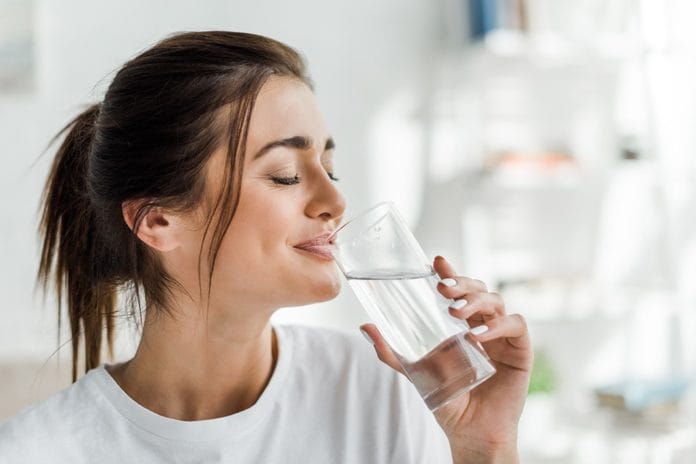How many of us would revolt if, during the COVID-19 pandemic, we were told that we could not have coffee? At times, I have felt I could not function without my java. Through the years, I have investigated coffee’s benefits to cognitive health, and some research shows that moderate coffee intake may promote a healthy brain.1
Additionally, research shows it is beneficial for the blood-brain barrier, which is the membrane that keeps toxins and insults out of the brain. So, what does “moderate” actually mean? The recommendation is less than 300mg of caffeine a day, which is equal to a single espresso or two small cups of coffee.
We have to pay strict attention to when we consume our beans because coffee has a 12-hour quarter-life and a five- to seven-hour half-life, meaning that caffeine is in our system much later in the day than most of us realize and as we age this gets worse. The type of coffee matters too. Freshly brewed espresso has a higher antioxidant capacity in comparison to all beverages, but instant coffee is to be avoided at all costs.2 Instant coffee can be filled with chemical concoctions that we should avoid drinking. The process of making instant coffee reduces antioxidant capacity. Also, it creates higher amounts of acrylamide, which is a chemical that forms between amino acids and sugars while heating certain foods.3 Acrylamide is a food contaminant that can accumulate in your system causing neuropathy and can increase cancer risk.4,5
Best Beverage for Brain
I dare not get into what we put in our coffee. We all know that high sugar, artificial colors, and artificial additives aren’t a smart idea. If you don’t like your coffee full strength, try a little honey or coconut sugar, which are much healthier choices. If you aren’t a coffee fan, green tea and matcha tea contain a good level of antioxidants and have benefits for your brain.
However, our best resource for health in liquid form is water, plain and simple. It is crucial for the brain and the body. Water is the main element of most parts of the body.
- The brain is up to 80% water, and even mild dehydration can trigger cognitive problems.
- The heart is 73% water. Dehydration strains the heart.
- The lungs are over 80% water.
- Muscles and kidneys are 79% water.
- Skin is 64% water.
We hear all the time that drinking more water helps with metabolism. Water is key to many functions of our intricate machine.
- Water allows the body’s cells to grow and reproduce.
- Water helps deliver oxygen, which is key to cellular respiration.
- Water increases blood flow to the brain, which is why dehydration can also impair cognitive function.
- Water is needed in the brain to make hormones and neurotransmitters.
- Water acts as a shock absorber for your brain and spinal cord, and for your baby if you are pregnant.
- Water is needed first to dissolve foods into nutrients and then transport the nutrients to the body and the brain.
- Water flushes waste out of your body, mainly in urine.
- Water forms saliva, which is the first step to digestion.
- Water helps regulate body temperature and, for women, think hot flashes.
- Water lubricates your joints. Even our bones are watery at 31%.
The adage regarding drinking eight 8-ounce glasses of water a day (or about two liters) is bolstered by research that shows that this maintains the proper percentage of body fluids in your system, but this level of consumption can speed up reaction time and cognitive performance by up to 30%.6 That means if we are at home chasing kids or back at the office helping patients, water can be our best friend.
I understand that when we are back in the office, we often barely have time to turn around, let alone drink water. Then, of course, the resulting restroom break. But that doesn’t mean we shouldn’t strive for more. The Center for Disease Control and Prevention (CDC) has numbers that show 43% of American adults drink less than four cups a day, and 7% of those drink NONE at all.7
Tomorrow morning before you drink your well-deserved coffee, drink a plain glass of warm water first. Warm water is more hydrating than cold and has a vasodilating effect, which means it makes veins “pop,” promoting absorption. It will replenish your brain and give you a jump on your day to deal with the most challenging of times.
Before you leave, check out the Today’s RDH self-study CE courses. All courses are peer-reviewed and non-sponsored to focus solely on pure education. Click here now.
Listen to the Today’s RDH Dental Hygiene Podcast Below:
References
- Eskelinen, M.H. Kivipelto, M. Caffeine as a Protective Factor in Dementia and Alzheimer’s Disease. J Alzheimers Dis. 2010; 20 Suppl 1: S167-74. doi: 10.3233/JAD-2010-1404. Retrieved from https://www.ncbi.nlm.nih.gov/pubmed/20182054.
- Carlsen, M.H., Halvorsen, B.L., Holte, K., et al. The Total Antioxidant Content of More than 3100 Foods, Beverages, Spices, Herbs and Supplements Used Worldwide. Nutr J. 2010; 9: 3. doi:10.1186/1475-2891-9-3. Retrieved from https://www.ncbi.nlm.nih.gov/pmc/articles/PMC2841576/
- Tareke, E., Rydberg, P., Karlsson, P., Eriksson, S., Törnqvist, M. Analysis of Acrylamide, a Carcinogen Formed in Heated Foodstuffs. J Agric Food Chem. 2002 Aug 14; 50(17): 4998-5006. doi: 10.1021/jf020302f. Retrieved from https://www.ncbi.nlm.nih.gov/pubmed/12166997
- Erkekoglu, P., Baydar, T. Acrylamide Neurotoxicity. Nutritional Neuroscience. Nutr Neurosci. 2014 Feb; 17(2): 49-57. doi: 10.1179/1476830513Y.0000000065. Epub 2013 Nov 26. Retrieved from https://www.ncbi.nlm.nih.gov/pubmed/23541332
- Shipp, A., Lawrence, G., Gentry, R., et al. Acrylamide: Review of Toxicity Data and Dose-Response Analyses for Cancer and Noncancer Effects, Critical Reviews in Toxicology. Crit Rev Toxicol. 2006 Jul-Aug; 36(6-7): 481-608. doi: 10.1080/10408440600851377. Retrieved from https://www.ncbi.nlm.nih.gov/pubmed/16973444
- Edmonds, C.J., Crombie, R., Gardner, M.R. Subjective Thirst Moderates Changes in Speed of Responding Associated with Water Consumption. Front Hum Neurosci. 2013; 16(7): 363. Retrieved from https://www.ncbi.nlm.nih.gov/pmc/articles/PMC3712897/
- Goodman, A.B., Blanck, H.M., Sherry, B., Park, S., Nebeling, L., Yaroch, A.L. Behaviors and Attitudes Associated with Low Drinking Water Intake Among US Adults, Food Attitudes and Behaviors Survey, 2007. Prev Chronic Dis. 2013; 10: 120248. doi: http://dx.doi.org/10.5888/pcd10.120248. Retrieved from https://www.cdc.gov/pcd/issues/2013/12_0248.htm










